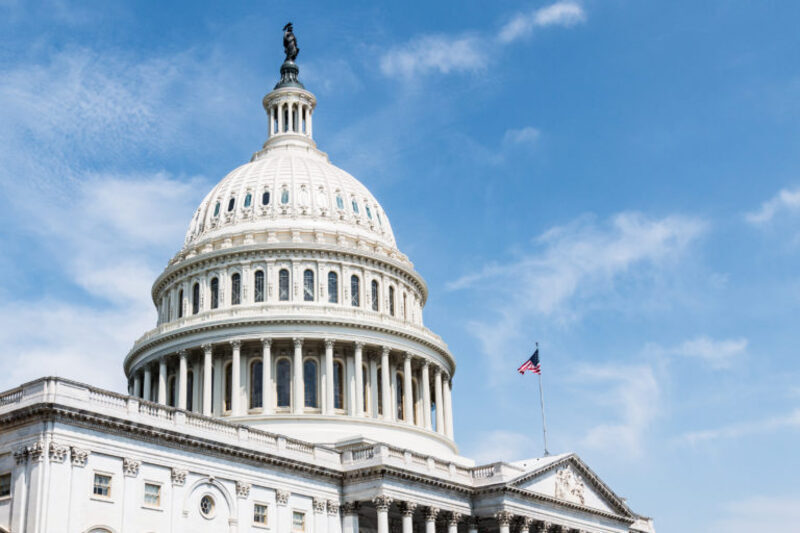-
- Market Research
- |
- CBD Near Me
- |
- Giveaways
- |
- Newsletter
- |
- Contact
- |
- Advertise
- |

Here’s the latest CBD news:
- A bill meant to streamline CBD research for FDA approval purposes has passed the senate.
- The Federal Trade Commission has begun sanctioning CBD sellers who make unsubstantiated medical claims about their products.
- CBD helps respondents of an Axon Relief survey with migraines.
- New Australian legislation will allow a larger field of CBD products to bypass prescription requirements.
Senate Passes CBD and Marijuana Research Expansion Act
On Tuesday, December 15th, the U.S. Senate passed the Cannabidiol and Marijuana Research Expansion Act, a bill designed to “Improve the process for conducting valid medical research on marijuana,” per the language, “and to streamline the development of safe and effective FDA-approved medicines.”
Among the list of provisions introduced by the bill are steps to reduce barriers in marijuana research, streamline FDA approval of CBD and marijuana-based drugs, and encourage physicians to speak with their patients about CBD.
To offer a specific example, this legislation allows medical schools to manufacture their own marijuana for research purposes, where before they could not.
This bill marks another victory for CBD and cannabis supporters in what has been a busy session for them, as the United Nations Commission on Narcotic Drugs removed cannabis from Schedule IV just weeks ago.
If the House of Representatives receives the bill as readily as the Senate, who passed it unanimously, it will only need to be signed by the President.
FTC Now Fining Sellers Who Make CBD Medical Claims
Along with the FDA, the Federal Trade Commission has been warning sellers and promoters of CBD and other cannabis-based products against making unsubstantiated medical claims for years, and on Thursday, December 17th, they unveiled a plan to “crack down” on six sellers “making a wide range of unsupported claims” regarding CBD’s benefits.
Operation CBDeceit, as the FTC is calling their crackdown, was introduced with six cases already open, in which the accused sellers will have to pay fines of up to $85,000 in addition to correcting their false claims.
In justifying their charges, the FTC cited several instances of a lack of human clinical testing in support of the sellers’ claims of CBD product safety, effectiveness, and utility for specific medical conditions.
Per Andrew Smith, Director of the FTC’s Bureau of Consumer Protection, “The six settlements announced today send a clear message to the burgeoning CBD industry: Don’t make spurious health claims that are unsupported by medical science.”
Combined with the Cannabidiol and Marijuana Research Expansion Act (if it is signed into law), this call for higher accountability intends to clean up the market prior to eventual FDA approval of more cannabis and CBD-based products.
Axon Relief Survey Points to Migraine-Relieving Potential of CBD
Axon Relief, a Utah-based company specializing in natural migraine remedies, has recently updated their site with the latest data from a migraine survey they conducted over the past few years.
The survey was designed as a 30-day trial of CBD use for migraines in which respondents submitted answers at the beginning and end of this time period.
Axon Relief claims that 86% of their 105 respondents “reported decreased headache impact” after using Axon Relief CBD.
Studies on this topic are sparse, especially those that specify CBD instead of medical marijuana, but what has been done seems to support this survey data.
Other, more specific data reported from survey respondents included a 33% reduction in headache days from chronic migraine sufferers and plenty of anecdotal accounts provided in the same article linked above.
Australia Grants Over-the-Counter Status to Select CBD Preparations
Australia’s Therapeutic Goods Administration (TGA) gave notice on December 15th that they have amended the “current Poisons Standard,” a legislative move that saw the relaxation of several protocols surrounding the sale and use of CBD.
Among the changes introduced by this amendment include the transfer of qualifying CBD products from Schedule 4 to Schedule 3, which removes the prescription requirement.
In order to fall into this category, CBD must comprise 98% or more of the total cannabinoid content in the product, and the “maximum recommended daily dose” must be 150mg or less, among other conditions.
Regardless of scheduling, CBD brands are now held to higher accountability standards in Australia as called for by the amendment.
This legislation is to take effect in February of 2021.







